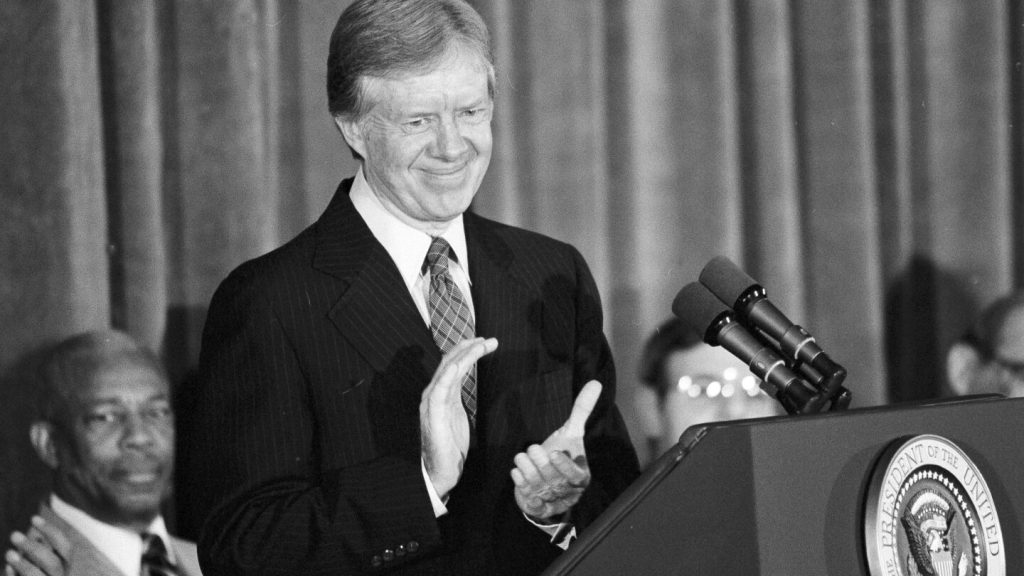The passing of former President Jimmy Carter has brought back memories of his decision to boycott the 1980 Olympics in Moscow, a move that denied hundreds of athletes their chance at Olympic glory. Carter called for the boycott as a response to the Soviet invasion of Afghanistan, citing it as a serious threat to world peace. The decision was made amidst Carter’s foreign policy successes and failures during his presidency.
The boycott decision was met with support from the U.S. Olympic Committee, with more than two-thirds of the members agreeing to keep the athletes out of Moscow. This move was seen as a textbook example of the risks and confusion when politics are injected into sports. Many members of the 1980 U.S. Olympic team missed out on their opportunity to compete in the games, with 227 athletes never getting another chance to participate in the Olympics.
Athletes who missed out on the 1980 Olympics shared stories of meeting Carter during a White House visit as a substitute for their missed opportunity in Moscow. Despite receiving Congressional gold medals as a form of recognition, the athletes felt that their dreams were unfulfilled due to the boycott decision. The decision to keep American athletes out of the 1980 Olympics had long-lasting effects on the athletes and the Olympic movement.
The boycott did not achieve its intended purpose, as the Soviet Union remained in Afghanistan for another nine years. The Olympics continued to be politicized and polarized, with the Soviets and other Eastern Bloc countries boycotting the Los Angeles Olympics in 1984 in retaliation. The legacy of Carter’s boycott decision still impacts international relations in sports, especially in light of Russia’s recent actions in Ukraine.
As the world looks towards the 2028 Olympics in Los Angeles, the role of Russia in international sports remains a point of contention. The resolution of conflicts and tensions will shape Russia’s participation in future Olympics and reflect the ongoing politicization of the games. Carter’s decision to boycott the 1980 Olympics serves as a reminder of the complexities and consequences of mixing politics with sports.















